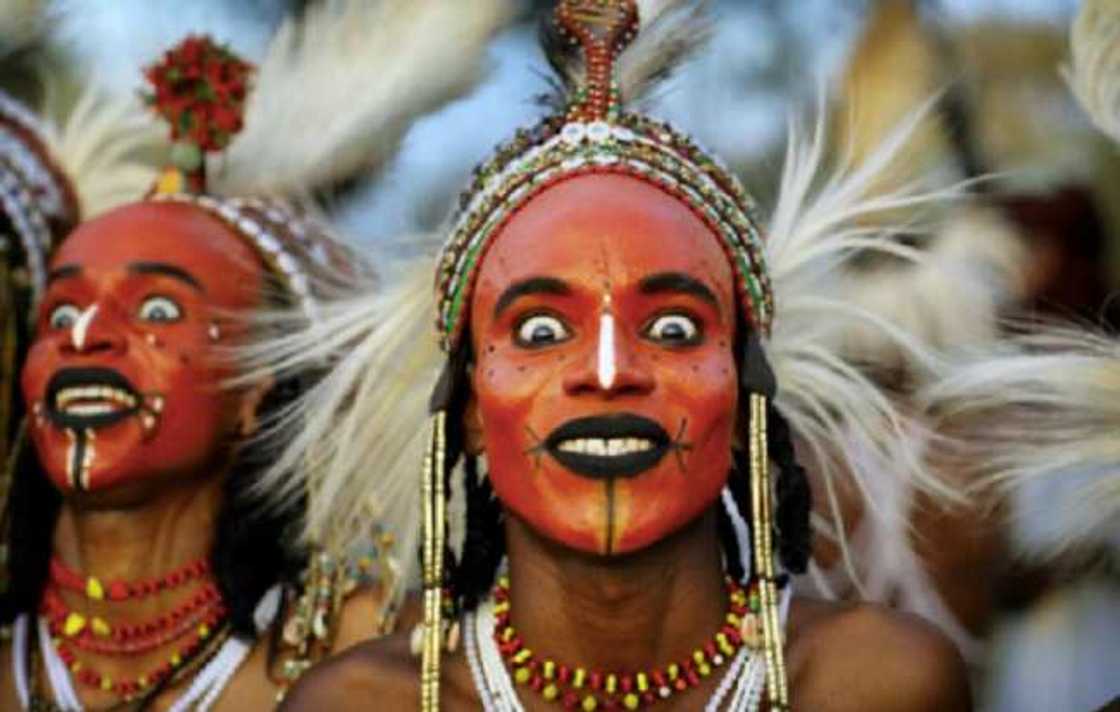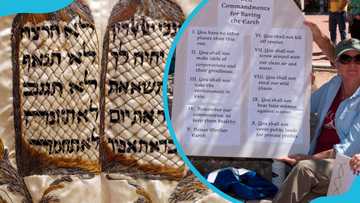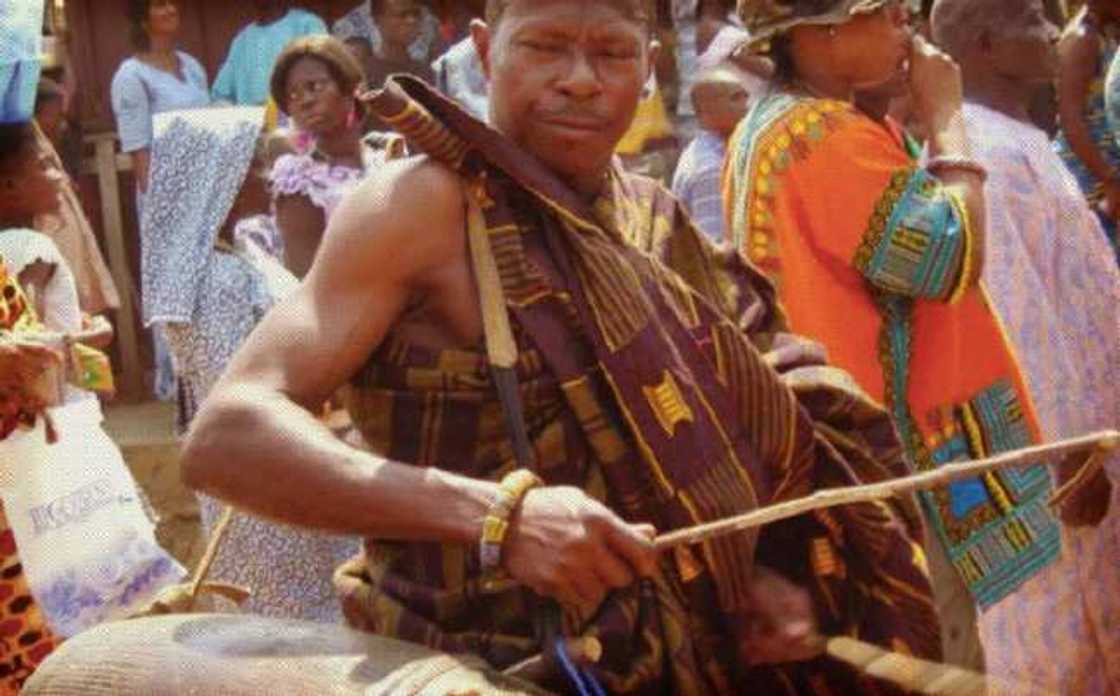Fante: basic phrases and interesting facts
If you are in the western and central areas of Ghana and you are looking for a native language that you can learn, then Fante is your best chance of learning the most used local language in this area. In other areas starting in the settlements and stretching down to the mid and go all the way to the southern part of Ghana, Fante should be your local language of choice. The Fante New Town located in Kumasi in the Ashanti area, is one of the regions where this language is widely used. The Fante have other alternative names. These are Mfantse, Fantse, and Fanti.

Source: UGC
Fantse or Fante is the most commonly used language among a number of kingdoms of the people of this language. In spite of this, all the kingdoms have their own sub-dialect. These are Agona, Oguaa Anomabo, Gomua and Abura. A lot of Fantes speak more than one language with most speaking Twi as their second language.

Read also
The Ten Commandments translated into Ebonics: A creative blend of biblical law and urban expression
In the central and western areas, the Fante has many dialects that can be understood by the different speakers of this language across the country. Individuals from Saltpond, Agona Swedru, Enyan, Cape Coast, Gomoa, Elmina, Sekondi-Takoradi, Shama, and Abuesi have their own distinct Fante dialects. Nonetheless, there is a standardized version of this language that is taught to learners in basic schools across all the areas named above.
What is the Fante tribe? How did the Fante Confederation operate? Is Fante spoken in Ghana? Get all the details about the smart and resolute Fante.
READ ALSO: Dagbani: basic phrases and interesting facts
Basic phrases
The Fantse language has been influenced greatly by English. People, even the uneducated, constantly mix this language with English as they speak. An example of this is when one says from time to time in Fantse, "Ofi mber tu mber". In this case, the speaker used to word 'tu' which is not an original word of this language but an English word meaning to. As if this is not all, some of the pronunciations of this language have been influenced by British English through Education and Christianity. Surprisingly, these variations have been passed down to new generations and are used as a mode of communication without anyone questioning their authenticity.
In spite of this, there are words and phrases of this language that you should learn about. These words will help you speed up your learning curve of the Fante language.
- Monday- Dwowda
- Tuesday - Benada
- Wednesday - Wukuda
- Thursday - Yawda
- Friday - Fida
- Saturday - Memenda
- Sunday - Kwesida
- First - Piesi
- Second - Manu
- Third - Mensa
- Fourth - Maanan
- Fifth - Enum
- Sixth - Esia
- Seventh - Esuon
- Eighth - Awotwe
- Tenth - Badu
- 1 - Kor
- 2 - Ebien
- 3 - Ebaasa
- 4 - Anan
- 5 - Enum
- 6 - Esia
- 7 - Esuon
- 8 - Awɔtwe
- 9 - Akrɔn
- 10 - Du
- 11 - Dubiako
- 12 - Duebien
- 13 - Duebaasa
- 14 - Duanan
- 15 - Duenum
- 16 - Duesia
- 17 - Duesuon
- 18 - Duawɔtwe
- 19 - Duakrɔn
- 20 - Eduonu
- 30 - Eduasa
- 40 - Eduanan
- 50 - Eduonum
- 60 - Eduosia
- 70 - Eduosuon
- 80 - Eduowɔtwe
- 90 - Eduokrɔn
- 100 - Ɔha
- 200 - Ahaebien
- 300- Ahaebaasa
- 400 - Ahaanan
- 500 - Ahaenum
- 600 - Ahaesia
- 700 - Ahaesuon
- 800 - Ahaawɔtwe
- 900 - Ahaakrɔn
- 1000 - Apem
- 2000 - Mpemebien
- 10000 - Mpemdu
- 1000000 - Ɔpepem
READ ALSO: Ewe: basic phrases and interesting facts
Interesting facts

Source: UGC
- Fante, Fanti, or Mfantsefo are part of the Akan people. They are mainly found in the central coastal area of Ghana while some are found in Ivory Coast. Initially, the term Fante was used to mean small states located within 80 kilometres radius of Mankessim.
- All the states that were combined to make up Fante included Abura, Kurantsi, Anyan, Nkusukum, Ekumfi, Gomoa, and Ajumako. Cape Coast, the central region is the main town of these people and Mankessim being their traditional headquarters.
- The people who speak this language have managed to hold on to their state until today, the strong Ashanti Kingdom and colonization notwithstanding.
- The succession and inheritance of public office follow a matrilineal system.
- In the 15th century, these people stopped the Portuguese from venturing inland after their arrival in the coast of Ghana. However, they leased land to them for trading purposes. This was a conditional agreement where the Portuguese were supposed to abide by the rules of the Fante lest they were chased away. Later, the Dutch and British arrived in that order. The Fante acted as middlemen in trade between all these traders, that were the British and Dutch traders and the locals.
- The Fante Confederacy began in the 18th century with a mission of establishing themselves as an equal partner in the trade so that the Europeans could treat them as their equals in commerce. In 1844, the British and the leaders of the confederacy, on behalf of the Gold Coast, signed an agreement that saw the Gold Coast attain independence without violence a century later.
- These people and their community have gifted the world with some of the best minds yet. Among these names are: Kofi Annan, Jacob Wilson Sey, Ekow Eshun, Sam Jonah, Ottobah Cugoano, Kwesi Amissah-Arthur, and Atta Mills.
- During their naming process, people from this subtribe utilize social tags to show group and personal identity. When giving their babies the first name, the Fante follow a naming system that is based on the particular day of the week that a child is born. A child may also be given a name depending on his or her specific number of birth. If she or he was born first, Piesi is the name that he or she will likely be given.
The ingenuity of the Fante people has seen them survive harsh times over the years. They have retained their state during the changing fortunes of time and managed to influence events because of following their own rule. They have also adapted to fit into the modern world without losing much of their identity. There is a lot to be learnt from the Fante.
READ ALSO:
- Bono: basic phrases and interesting facts
- Frafra: basic phrases and interesting facts
- Mampruli: basic phrases and interesting facts
Source: YEN.com.gh




